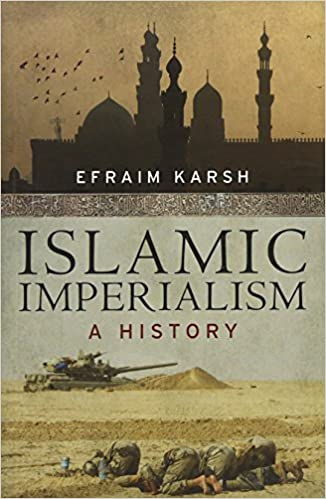I've been reading Islamic Imperialism: A History by Efraim Karsh. I didn't know anything about Islamic history when I started and still only have a vague understanding of the big picture. The names are unfamiliar so it is difficult to keep the cast of characters straight. The pages of unillustrated narrative haven’t helped me develop a timetable of the millennia or a big picture of developments, but I have a renewed appreciation of the difficulty that students have when studying history with a limited understanding of the context and little intrinsic motivation. I’m reading because I want to and have no time restraints. Students rarely have these advantages.
However, the biggest realization was that the Crusades, as Karsch described them, were quite different than what I’d heard repeatedly in the past. He maintains that the Crusades were not impassioned religious wars but part of the never-ending fighting among different Middle Eastern groups before and after as well as during the time of the Crusades. Whether Karsch’s perspective of that time is completely correct, it was very different from the stereotypical presentation of religious wars that is often used to vilify all religion. This help me understand how important it is to understand that history is definitely an interpretive science as well as being descriptive. The perspective of the historian will shape the description and conclusions of any history. Christians studying history don’t need to restrict themselves to accounts written by Christians but do need to consider multiple perspectives as well as the big picture of human history that God has revealed in the Bible. The context of the events as well as the perspective of the historian can’t be ignored. For students being introduced to the study of history, the guidance and example of wise teachers is important, especially when students are predisposed to accept the “latest and greatest” on the internet with virtually no consideration of sources or any awareness of anything other than the immediate present.

 By
By